Is Demon Slayer Suitable for Kids? A Parent's Guide to the Hit Series
Curious if Demon Slayer is safe for children? Dive into its themes, violence, and age recommendations to decide what's best for your family. Click now!
DEMON SLAYER
Anime Fever
7/29/20247 min read
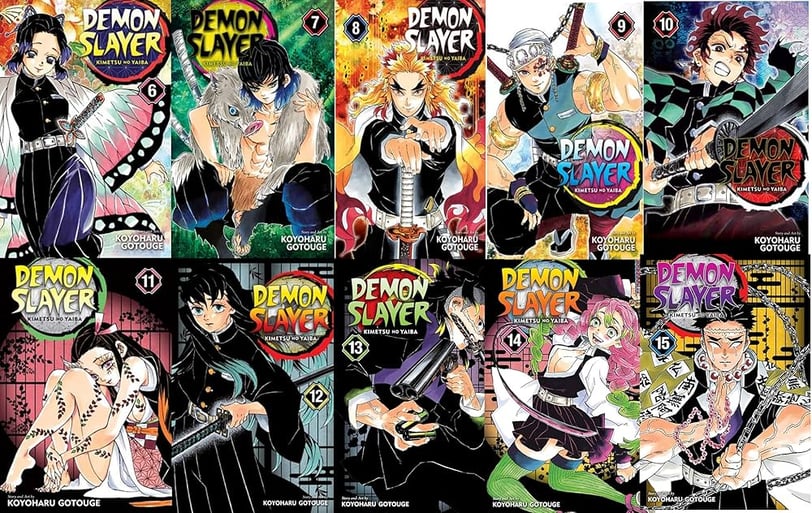

"Demon Slayer: Kimetsu no Yaiba," a manga series written and illustrated by Koyoharu Gotouge, has taken the world by storm since its debut in 2016. With its compelling story, well-developed characters, and stunning artwork, it has amassed a significant following, leading to an equally successful anime adaptation. However, as with many popular media franchises, there is an ongoing debate among parents, educators, and fans regarding the appropriateness of "Demon Slayer" for children. This article aims to explore various aspects of the series, including its themes, content, and reception, to provide a comprehensive understanding of whether "Demon Slayer" is suitable for young readers.
Overview of Demon Slayer
"Demon Slayer: Kimetsu no Yaiba" follows the story of Tanjiro Kamado, a kind-hearted boy who becomes a demon slayer after his family is slaughtered by demons, leaving his sister Nezuko as the sole survivor who has been transformed into a demon. Tanjiro embarks on a journey to find a cure for Nezuko and avenge his family by fighting demons. The series is set in Taisho-era Japan and blends elements of historical fiction with fantasy and supernatural genres.
Themes and Moral Lessons
One of the primary themes of "Demon Slayer" is the battle between good and evil. The series portrays the demons as antagonists who commit heinous acts, but it also explores their tragic backstories, often revealing that they were once human and fell into despair or were manipulated into becoming demons. This nuanced portrayal of antagonists can teach children empathy and the importance of understanding others' perspectives.
Another significant theme is the importance of family and the lengths one will go to protect loved ones. Tanjiro's unwavering dedication to his sister Nezuko and his determination to restore her humanity highlight the value of familial bonds and sacrifice. The series also emphasizes resilience, courage, and the importance of never giving up, even in the face of overwhelming odds.
Violence and Gore
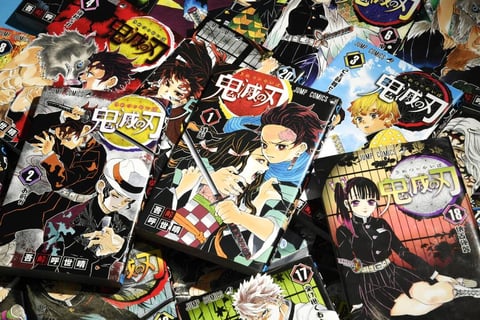

One of the primary concerns regarding the appropriateness of "Demon Slayer" for children is its depiction of violence and gore. The series does not shy away from showing intense battles between demon slayers and demons, often resulting in graphic injuries and deaths. Demons are decapitated, limbs are severed, and blood is frequently shown. While these elements are integral to the story and contribute to its dramatic tension, they may be distressing for younger readers.
Parents and guardians should consider the maturity and sensitivity of their children before allowing them to read "Demon Slayer." It is essential to have open discussions with children about the content they are consuming and to provide context for the violence depicted in the series. Additionally, parents can use this opportunity to teach children about the differences between fiction and reality and the consequences of real-life violence.
Horror Elements
"Demon Slayer" incorporates several horror elements, including the existence of demons who prey on humans, the transformation of humans into demons, and the eerie, often unsettling atmosphere present in many scenes. The demons in the series possess supernatural abilities and grotesque appearances, which can be frightening for young readers. The suspense and horror elements contribute to the overall tone of the series and may be unsuitable for children who are easily scared or have a low tolerance for horror.
Character Development and Positive Role Models
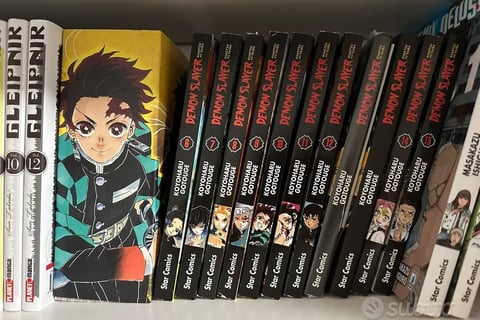

Despite its dark themes and violent content, "Demon Slayer" offers positive role models and valuable life lessons. Tanjiro Kamado, the protagonist, embodies qualities such as kindness, compassion, determination, and a strong sense of justice. His unwavering commitment to protecting his sister and helping others, even at great personal risk, sets a positive example for readers.
The series also features a diverse cast of characters, each with their unique strengths and struggles. Many of these characters undergo significant development throughout the story, learning important lessons about friendship, loyalty, and self-acceptance. The presence of strong female characters, such as Nezuko and Kanao Tsuyuri, provides positive representation and empowers young readers.
Language and Dialogue
The language and dialogue in "Demon Slayer" are generally appropriate for a younger audience. The characters speak in a respectful and polite manner, reflecting the cultural norms of the Taisho era. However, there are occasional instances of strong language and insults, primarily during intense battle scenes or confrontations with demons. While these instances are relatively rare, parents should be aware of their presence and consider their child's sensitivity to such language.
Cultural and Historical Context
"Demon Slayer" is set in early 20th century Japan, and as such, it incorporates various cultural and historical elements unique to that period. The series provides an opportunity for young readers to learn about Japanese history, traditions, and folklore. However, some cultural references and nuances may be unfamiliar to Western audiences, potentially leading to misunderstandings or confusion.
Parents and educators can use "Demon Slayer" as a teaching tool to introduce children to Japanese culture and history. Providing additional context and explanations for cultural references can enhance the reading experience and foster a deeper appreciation for the story.
Reception and Awards
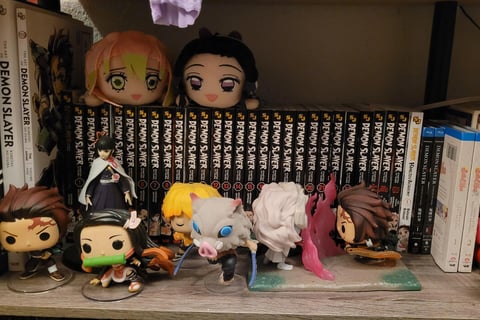

"Demon Slayer" has received widespread acclaim from both fans and critics, earning numerous awards and accolades. It has been praised for its compelling storytelling, well-developed characters, and stunning artwork. The anime adaptation, in particular, has been lauded for its high-quality animation and faithful adaptation of the manga.
The series' popularity and critical success have contributed to its status as a cultural phenomenon, further increasing its appeal to readers of all ages. However, this widespread popularity does not necessarily equate to appropriateness for all audiences, and parents should carefully consider the content and themes before allowing their children to read or watch "Demon Slayer."
Age Recommendations
The official age rating for "Demon Slayer" varies by region and publisher. In Japan, the manga is typically rated for ages 13 and up, while in North America, it is often rated for older teens (16+). These ratings reflect the series' mature themes, violence, and horror elements.
Parents should use these age recommendations as a guideline and consider their child's individual maturity level and sensitivity to certain content. It is also helpful to read reviews and seek input from other parents or educators who are familiar with the series.
Balancing Entertainment and Education
While "Demon Slayer" is primarily a work of fiction designed to entertain, it also offers educational opportunities. The series' exploration of themes such as empathy, resilience, and the importance of family can provide valuable life lessons for young readers. Additionally, its depiction of Japanese culture and history can serve as an educational tool for learning about a different cultural context.
Parents and educators can facilitate discussions about the themes and lessons presented in "Demon Slayer," encouraging children to think critically about the story and its characters. By balancing entertainment with education, "Demon Slayer" can become a valuable resource for teaching important values and cultural awareness.
Parental Involvement and Guidance
Ultimately, the appropriateness of "Demon Slayer" for children depends on individual circumstances and parental judgment. Parents should take an active role in monitoring their children's media consumption and providing guidance when necessary. Reading the series together or discussing it afterward can help parents address any concerns or questions their children may have.
Parental involvement also allows for the opportunity to set boundaries and establish guidelines for what is acceptable. For example, parents can decide whether certain scenes or episodes are too intense and suggest taking breaks or skipping them. Open communication and active engagement with children's media consumption can help ensure a positive and enriching experience.
Alternatives to Consider
For parents who determine that "Demon Slayer" may not be suitable for their children, there are several alternative manga and anime series that offer similar themes and entertainment value without the same level of violence and horror. Some recommendations include:
"My Hero Academia" by Kohei Horikoshi
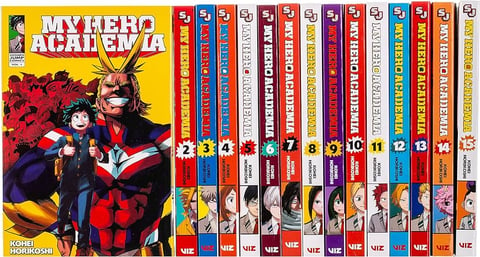

This series follows a group of young heroes-in-training and emphasizes themes of bravery, friendship, and perseverance. While it contains action and battle scenes, the violence is less graphic compared to "Demon Slayer."
"Naruto" by Masashi Kishimoto
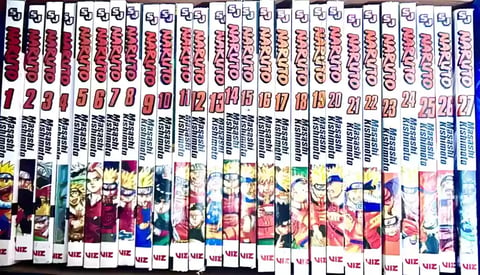

A classic series about a young ninja's journey to become the strongest ninja in his village. It combines action, humor, and heartfelt moments, making it suitable for a younger audience.
"One Piece" by Eiichiro Oda
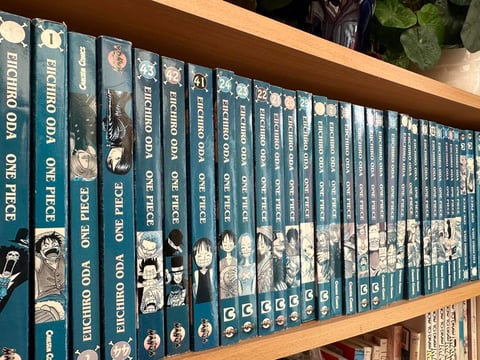

This long-running series follows the adventures of a group of pirates searching for the ultimate treasure. It features a mix of action, comedy, and strong themes of friendship and loyalty.
"Dragon Ball" by Akira Toriyama
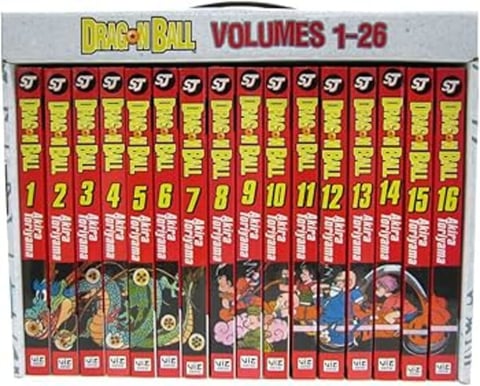

A beloved series that follows the adventures of Goku and his friends as they search for the Dragon Balls and defend the Earth from various threats. It offers action-packed storytelling with positive messages about teamwork and determination.
Conclusion
"Demon Slayer: Kimetsu no Yaiba" is a captivating and well-crafted series that has garnered a massive following worldwide. Its themes of empathy, resilience, and the importance of family make it a compelling story for readers of all ages. However, its depiction of violence, horror elements, and mature themes may not be suitable for all children.
Parents should carefully consider their child's maturity level and sensitivity to certain content before allowing them to read "Demon Slayer." By taking an active role in monitoring and discussing their children's media consumption, parents can help ensure a positive and enriching experience. Additionally, there are many alternative series available that offer similar themes and entertainment value without the same level of intensity.
Ultimately, the decision of whether "Demon Slayer" is appropriate for kids lies with individual parents and guardians. By making informed choices and fostering open communication, parents can guide their children toward media that is both enjoyable and suitable for their age and maturity level.
